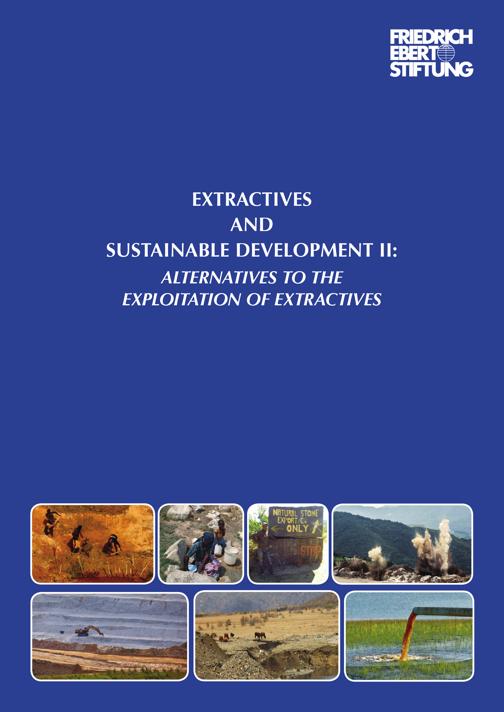Publikationen der StiftungExtractives and sustainable development II Titel
Titelaufnahme
- TitelExtractives and sustainable development II : alternatives to the expoloitation of extractives
- Körperschaft
- Erschienen
- Umfang84 Seiten : Diagramme
- SpracheEnglisch
- DokumenttypDruckschrift
- Schlagwörter
- Geografika
- ISBN978-0-7974-7673-8
- URN
- Das Dokument ist frei verfügbar
- Nachweis
- Archiv
There has been a growing recognition in Zimbabwe that the current economic model governing the extractive sectors has failed to promote sustainable and just economic development. Government has concurred in its current economic blue print, the Zimbabwe Agenda for Sustainable Socio-economic Transformation ZIMASSET, the need to step up efforts for sustainable development and environmental protection. Although economic benefits from the increased activity of extractive industries are often seen as an indicator of growth, the downside of this is its impact on the eco-system and human society.The issue of decent jobs in the sector has also become topical as poor working conditions and lack of investment in proper skills management indicates exploitation not only of natural resources but of human resources as well. These aspects are underestimated and largely ignored by mainstream economic and political debates centering around conventional extractivism-models based on high levels of FDI and export of raw materials. Environmental and social impacts are thus seen as sacrifices for greater benefits. There is need for a debate on alternative economic models that depart from the corporate extractivism to ensure that social and economic rights are progressively realised through the exploitation of natural resources and to foster the debate towards sustainable investment and tax policies. The authors in this publication discuss the political economy of the exploitative extractives industry in Zimbabwe and interrogate the social impact of current modes of extraction and proffer alternatives as they make a contribution towards sustainable development processes.
